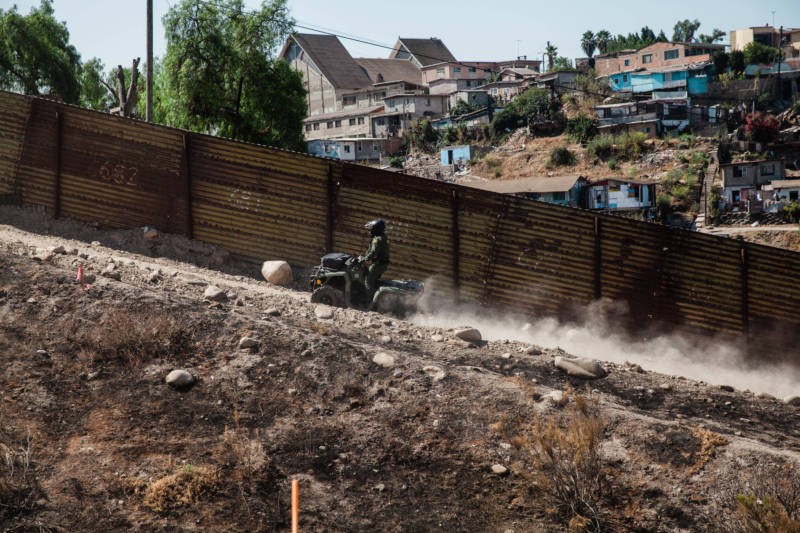Trump's son-in-law and senior adviser, Jared Kushner, has been quietly working on the plan for months and briefed Republican senators on the details Tuesday. A senior administration official, who spoke to reporters Wednesday on the condition that his name not be used, said the proposal was a "good faith effort" intended to unify Republicans and start a discussion.
"Right now, this is the Trump plan and we're hoping this will become the Republican plan," the official said.
The plan, as described by the administration official, would prioritize merit-based immigration, limiting the number of people who could get green cards by seeking asylum or based on family ties. But it would keep immigration levels static, neither increasing or decreasing the number of people allowed to legally enter the U.S. each year. Here are the elements of the proposal as described to reporters:
- Securing the border: Finishing the border wall
- Protecting American wages: Stemming the flow of low-wage labor
- Attract and retain the best and brightest immigrants
- Prioritize nuclear families: It would limit family members who can come to the country to children and spouses
- Import labor for critical industries
- Preserve humanitarian values: Keep asylum system, but limit it
Democrats criticized the plan, which House Speaker Nancy Pelosi said was “dead on arrival.”
“I want to say something about the word that they use, merit," Pelosi said. "It is really a condescending word. Are they saying family is without merit? Are they saying most of the people that ever came to the United States in the history of our country are without merit because they don’t have an engineering degree? Certainly we want to attract the best to our country and that includes many people from many parts of society.”
The announcement comes as the Trump administration is struggling to deal with a dramatic increase in asylum-seekers trying to enter the U.S. along the southern border, creating what many are now calling a humanitarian crisis.
Earlier this year, President Trump declared a national emergency to go against the wishes of Congress and shift funds to build the border wall he promised during his presidential campaign. White House aides see this as an ideal moment to try again to reshape the immigration system and enhance border security, something that requires congressional buy-in.

